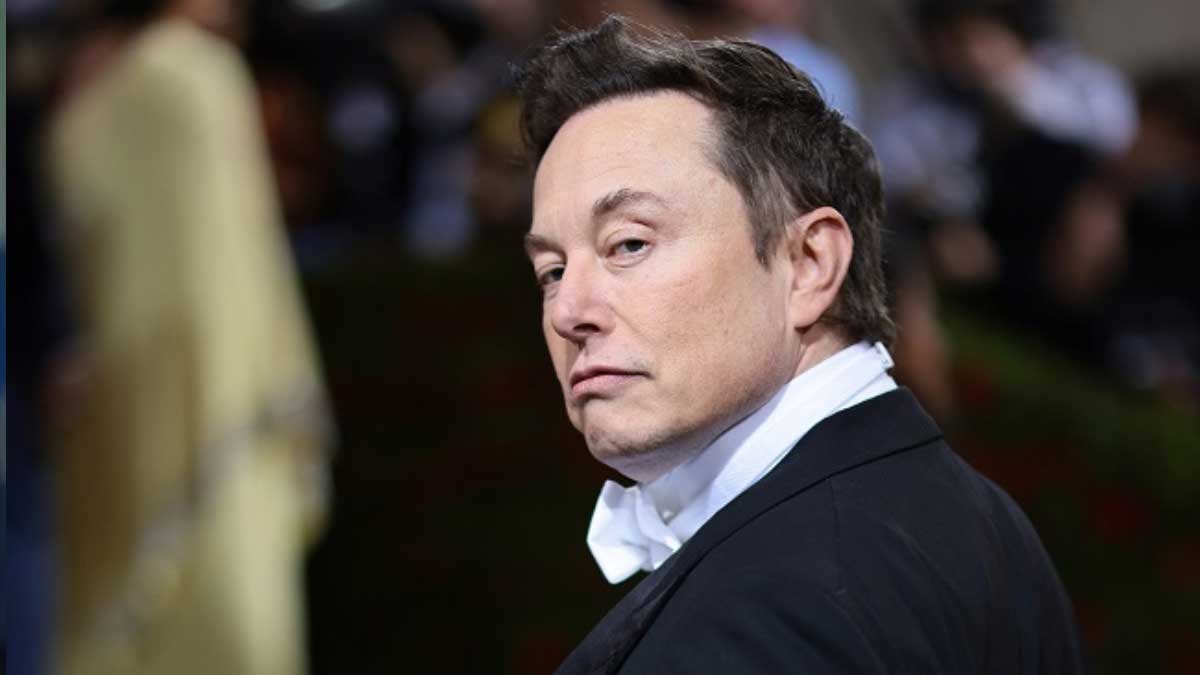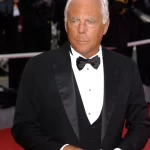- Home
- Billionaires
- Investing Newsletters
- 193CC 1000
- Article Layout 2
- Article Layout 3
- Article Layout 4
- Article Layout 5
- Article Layout 6
- Article Layout 7
- Article Layout 8
- Article Layout 9
- Article Layout 10
- Article Layout 11
- Article Layout 12
- Article Layout 13
- Article Layout 14
- Article Sidebar
- Post Format
- pages
- Archive Layouts
- Post Gallery
- Post Video Background
- Post Review
- Sponsored Post
- Leadership
- Business
- Money
- Small Business
- Innovation
- Shop
Recent Posts
Secret Service Investigates Musk’s Assassination Post

The U.S. Secret Service is currently investigating a now-deleted post made by Elon Musk on X (formerly Twitter), in which he wrote a controversial comment about assassination attempts on U.S. leaders. Musk, known for his role as the CEO of Tesla and owner of X, posted on Sunday: “No one is even trying to assassinate” President Joe Biden or Vice President Kamala Harris. His post sparked concerns given the sensitive nature of threats against political figures, particularly following two reported assassination attempts on former President Donald Trump. The post was deleted shortly after it was published, but it has prompted the Secret Service to open an investigation into the matter.
According to a report by Bloomberg, which cited sources familiar with the investigation, the Secret Service has acknowledged that it has compiled records related to Musk’s post for law enforcement purposes. However, the agency has stated that it will not release these records to the public, as their disclosure could interfere with ongoing enforcement proceedings. This development followed Bloomberg’s request for information under the Freedom of Information Act (FOIA), seeking insight into any files the Secret Service may have regarding the post. The agency confirmed that it was aware of the post and emphasized that it investigates all threats directed at individuals under its protection.
The controversial post was part of an exchange on X, where Musk responded to a question about why people might want to kill Trump. In his response, Musk remarked that “no one is even trying to assassinate Biden/Kamala,” a statement that many found alarming given the gravity of assassination threats. Musk later attempted to clarify the intent behind his comment, suggesting that it was meant as a joke. He explained that “just because I say something to a group and they laugh doesn’t mean it’s going to be all that hilarious as a post on X,” implying that the post may have been misunderstood in its online context. Despite his explanation, the post was swiftly deleted, and concerns over its implications remained.
The Secret Service, which is responsible for the safety and protection of the president, vice president, and other high-ranking officials, has stated that it would not comment on matters involving protective intelligence. The agency reiterated its policy of investigating all threats to its protectees, emphasizing the seriousness with which it handles potential dangers to national leaders. As of Thursday, neither Musk nor his attorney, Alex Spiro, had responded to requests for comment on the situation.
The White House condemned Musk’s post in strong terms, calling it “irresponsible rhetoric.” A spokesperson added that “violence should only be condemned, never encouraged or joked about,” highlighting the broader concerns about public figures making light of threats against political leaders. The administration’s stance underscores the importance of maintaining decorum and sensitivity in discussions that touch on the safety of U.S. officials, particularly in an era where social media posts can spread rapidly and incite significant reactions.
Musk’s involvement in political discourse has become more pronounced in recent months, with the billionaire frequently using his platform to share opinions on current events and political figures. His net worth, estimated at $259.6 billion, makes him the richest person in the world, according to Forbes. This financial power has afforded him considerable influence, both as the head of major corporations like Tesla and X and as a political commentator. His engagement in the political sphere is particularly notable in the lead-up to the 2024 presidential election, where he has publicly expressed his support for Donald Trump.
Musk’s endorsement of Trump has raised eyebrows, especially given the recent assassination attempt against the former president in July. Trump has faced several security threats over the years, including the most recent attempt on his life, which occurred at his West Palm Beach golf club in Florida. Despite these threats, Trump has maintained a close relationship with Musk, even suggesting that he would appoint the tech mogul as the head of a new “government efficiency commission” if he were re-elected. This commission, according to Trump, would be tasked with conducting a comprehensive financial and performance audit of the federal government.
Musk has not shied away from critiquing the current administration, particularly Biden and Harris. His posts on X have included sharp critiques of their policies, and he has engaged in spreading conspiracy theories, such as false claims that the Biden administration allows undocumented immigrants to vote in U.S. elections. These actions have further positioned Musk as a polarizing figure in the political landscape, blurring the lines between his roles as a business leader and a political influencer.
The Secret Service’s investigation into Musk’s post is not without precedent. In the past, the agency has looked into other incidents involving public figures and perceived threats against political leaders. For example, in 2017, rapper Marshall Mathers, known as Eminem, was investigated for lyrics in his album “Revival” that appeared to threaten Trump. The Secret Service ultimately decided not to take any action against the rapper. Similarly, comedian John Mulaney faced scrutiny from the agency after he made jokes about Trump during a “Saturday Night Live” monologue, though no direct threats were found in his remarks.
More recently, the Secret Service investigated actor John Schneider, known for his role in “Dukes of Hazzard,” after he posted on X that Biden and his son Hunter should be hanged. It remains unclear whether that investigation is still ongoing. These cases highlight the agency’s commitment to thoroughly investigating any potential threats, regardless of the medium through which they are communicated.
The investigation into Musk’s post adds another layer to the ongoing scrutiny of social media platforms and their role in public discourse. As the owner of X, Musk wields significant control over one of the largest social media platforms in the world, and his comments carry substantial weight. The Secret Service’s involvement in this case underscores the seriousness with which authorities treat any remarks that could be interpreted as threats against the president and vice president, even if those remarks are made in jest.
Recent Posts
Categories
- 193cc Digital Assets2
- 5G1
- Aerospace & Defense46
- AI37
- Arts3
- Banking & Insurance11
- Big Data3
- Billionaires446
- Boats & Planes1
- Business328
- Careers13
- Cars & Bikes76
- CEO Network1
- CFO Network17
- CHRO Network1
- CIO Network1
- Cloud10
- CMO Network18
- Commercial Real Estate7
- Consultant1
- Consumer Tech180
- CxO1
- Cybersecurity68
- Dining1
- Diversity, Equity & Inclusion4
- Education7
- Energy8
- Enterprise Tech29
- Events11
- Fintech1
- Food & Drink2
- Franchises1
- Freelance1
- Future Of Work2
- Games141
- GIG1
- Healthcare78
- Hollywood & Entertainment186
- Houses1
- Innovation42
- Investing2
- Investing Newsletters4
- Leadership65
- Lifestyle11
- Manufacturing1
- Markets20
- Media193
- Mobile phone1
- Money13
- Personal Finance2
- Policy567
- Real Estate1
- Research6
- Retail1
- Retirement1
- Small Business1
- SportsMoney33
- Style & Beauty1
- Success Income1
- Taxes2
- Travel10
- Uncategorized8
- Vices1
- Watches & Jewelry2
- world's billionaires415
Related Articles
Trump Moves $4B Stake in Truth Social Parent, Stock Drops 6%
Donald Trump recently transferred his 57% stake in Trump Media & Technology...
By 193cc Agency CouncilDecember 20, 2024House Rejects Trump-Backed Funding Bill, Shutdown Looms
The U.S. House of Representatives rejected a new government funding bill on...
By 193cc Agency CouncilDecember 20, 2024Trump Named Time’s Person of the Year for Second Time
On Thursday, Time magazine honored Donald Trump as its “Person of the...
By 193cc Agency CouncilDecember 12, 2024Meta Donates $1 Million to Trump’s Inaugural Fund
Meta, the parent company of Facebook and Instagram, has confirmed a $1...
By 193cc Agency CouncilDecember 12, 2024















Leave a comment